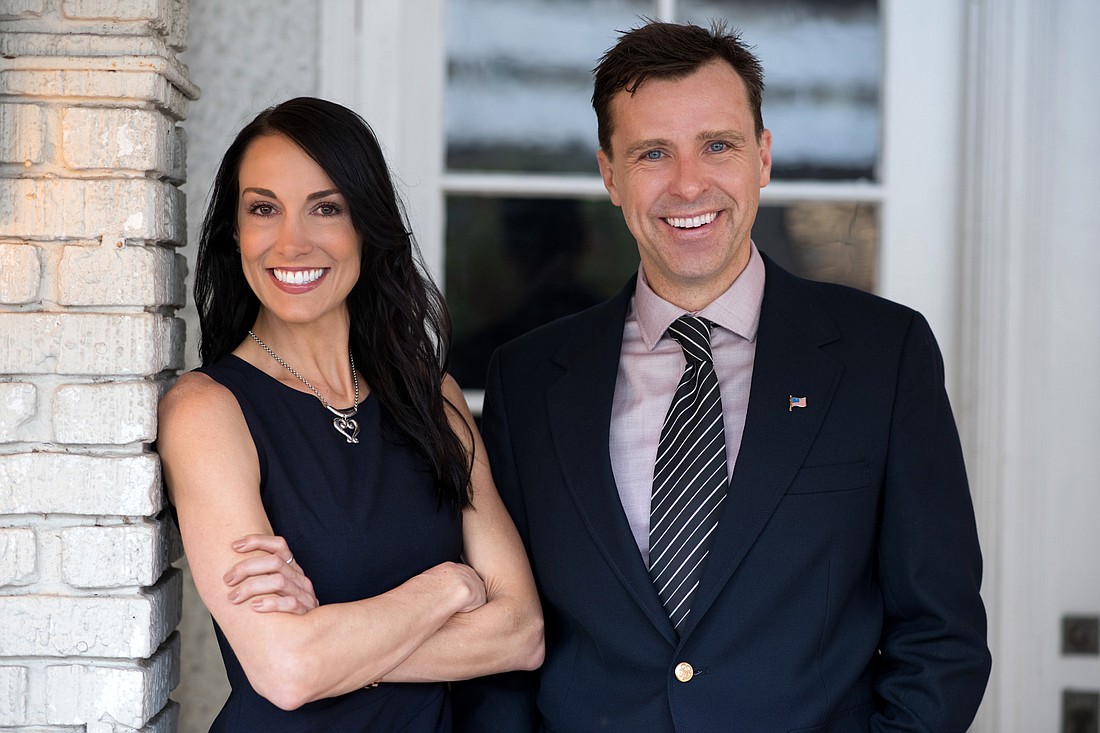- November 14, 2024
-
-
Loading

Loading

Within the veteran community, there are those who are dealing with wounds that can’t be seen — veterans from all generations who have returned home from service with symptoms associated with post-traumatic stress, depression and anxiety.
The trauma they have experienced continues to affect their everyday lives. While mental health treatment is available to veterans, Operation Warrior Resolution offers an alternate path.
Founded by veteran and Sarasota native Kendra Simpkins and Ryan Praefke, OWR offers holistic retreats and a form of therapy called Rapid Resolution Therapy at no costs to veterans.
Unlike traditional talk therapy treatment, RRT helps patients in a way so they do not have to relive their trauma. RRT helps the brain process the traumatic event to make patients feel like they are no longer living it. The treatment aims to change a patient’s physiological fight or flight response to their past experiences. The therapist guides the patient to eliminate negative associations and provide them with the tools they need to handle trauma in a healthy, effective and objective manner.
Simpkins said it usually only takes one to three sessions to help clear away trauma, and while the duration of RRT is short, the benefits are lasting.
“Other forms of therapy can be long and painful, and a lot of times they don’t even complete the therapy because it is such a painful process,” Simpkins said. “It’s eye-opening for clients when they realize how helpful RRT is. They have given up on other therapies that are not working for them.”
After Simpkins was honorably discharged from the U.S. Army, the former intelligence analyst went back to school to become a clinical social worker after she saw the struggles other veterans were dealing with.
“You're coming from doing something that feels so honored and fulfilling, and then you come out doing nothing,” she said. “It's important to feel like you have a purpose, but I think most people don't actually realize what happens to the minds and bodies of a lot of veterans that keep them from living fulfilling and productive lives. ”
One veteran Simpkins worked with said every Fourth of July, he normally has to avoid the sound of fireworks. This past July Fourth, however, he didn’t even notice the fireworks while he was talking with his wife.
“His wife had to ask him if he knew what was happening,” Simpkins said. “It didn't even occur to him that he use to have an issue with being around fireworks.
OWR has also partnered with other organizations such as Waves of Hope and CODE H.O.R.S.E. to provide veterans with retreats that incorporate holistic forms of therapy such as yoga, acupuncture, massage and equine therapy.
“The RRT and the equine therapy combination is transformational,” said Praefke. “All of the treatments are intended to not only clear
the trauma from the mind but also the physical aspects it has on the body, and so many miss that aspect of it.”
Praefke described a retreat where a veteran needed a cane, but after riding on the horse, she was able to walk pain-free without using a cane for the rest of the weekend.
“Some of the best feedback has been from the family members of these veterans,” he said. “There’s no ultimate cure, but at least they get their loved ones back. Veterans have a huge amount of strength and resilience in them, and it’s amazing to see them get their lives back.”
Praefke and Simpkins's goal is to make alternative forms of therapy readily available to veterans throughout the U.S.
“We want veterans to know there are other options out there, and I'd love for us to make alternative treatments a household name,” Praefke said. “Equine therapy has been around for decades, and acupuncture and meditation have been around for centuries. These practices find the source of problems instead of repressing them.”